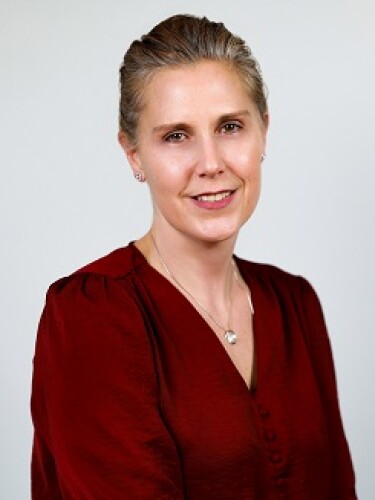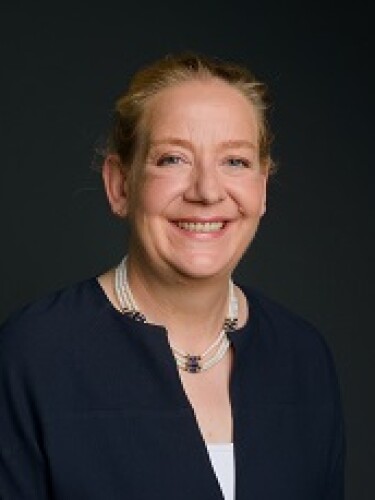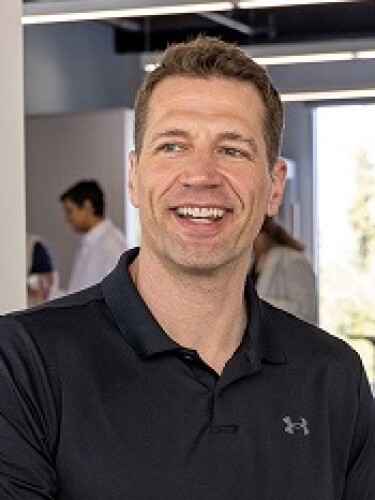More and more life science professionals are weighing a leap from working in the corporate world to launching a company of their own. Here are some points they should know.
Pictured: An illustration of a vector-drawn light bulb on blue background / iStock, Thutchai Supprasert
Stephanie Pasas-Farmer spent over a decade employed at powerhouse biopharma companies like Merck and Bristol Myers Squibb, but in 2018, she decided to make a change.
She quit her job and launched two startups, BioData Solutions and Ariadne Software, building on the small side hustle she’d already started by consulting for a handful of clients.
“I thought if I was going to do 80-to 100-hour weeks, weekends and nights, I should quit and start a part-time consulting lab,” Pasas-Farmer said.
Her husband, who owned his own IP law firm for close to 20 years, had touted the benefits of working independently, she said. So, she launched her two businesses with the consulting clients she’d accumulated to that point.
Five years later, she has merged her two businesses and now boasts more than 50 clients.
“[I went from a] startup to a small business worth over $2 million in combined revenue last year and a greater than 30% growth for both companies [year] over year,” Pasas-Farmer said.
She is not alone in this trajectory.
Nearly 1.7 million applications for businesses were filed in 2022, according to Economic Innovation Group, a bipartisan public policy organization—the second largest business filing on record and close to a 30 percent increase over 2019.
Tina Morris, executive director of the American Association of Pharmaceutical Scientists (AAPS), told BioSpace that in her three years working in her current role, she’s seen a growing interest in AAPS members wanting to explore career flexibility.
In fact, at the 2023 AAPS National Biotechnology Conference held in Philadelphia in April, several of the meeting’s sessions were developed “in response to conversations from our members who are transitioning from purely technical [roles] to business,” she said.
“We’re paying close attention to the rapid shift in biotech, which not only affects the pace of innovation but also business opportunities,” Morris said. “While I can’t speak to layoffs, I can say we’ve had a steady increase in adapting to a more rapidly changing business environment, more than in the past.”
IP Law for Early Biotech Entrepreneurs
One important consideration for would-be startup founders is intellectual property (IP). At one session in the AAPS conference, Paul J. Malino, managing partner at Rakoczy Molino Mazzochi Siwik LLP, warned aspiring entrepreneurs that, on average, it’s a three-to-six-year journey to get an application through the U.S. patent office. He also noted that patents come with a steep price tag—usually more than $60,000 between fees and attorneys.
“The strongest patents are base patents,” Malino said. “You have it for 20 years and you’re golden for those 20 years. No one is going to compete with you during that time.”
He also emphasized the importance of patent application dates, noting that it can be a competitive race to the patent office to determine who invented the product first.
Lara E. Fitzsimmons, also at Rakoczy Molino Mazzochi Siwik LLP, said in a session that patent attorneys are invaluable resources in these endeavors. As one example of their services, she noted that patent attorneys could investigate the IP behind existing products that might serve as a barrier to a new company’s applications. For example, even though a drug might only be approved for depression, she said, that doesn’t mean it wasn’t originally patented for a range of mental health disorders.
“That’s the kind of thing you have to use attorneys out there for; you have to have freedom to operate,” Fitzsimmons said.
Raising Funds
Another challenge budding entrepreneurs need to think about is money. Commonly, funding comes from investors.
Joel Dudley, a partner at Silicon Valley–based venture capital firm Innovation Endeavors and the opening keynote speaker at the AAPS conference, said in his address that he believes the number of unmet clinical needs is going to increase in coming years, as will the number of new biotech startups. And as an investor, he noted, he looks for mission-driven companies with deep technical and scientific roots.
“When you’re an investor, you have to come up with a thesis for what is the state of the world, today and in the future. Who are the companies that we want to invest with that take us into the future?”
But investors aren’t the only option. Pasas-Farmer said she takes pride in being self-funded.
“Everyone tells you [that] you have to get investors, but it’s a choice,” she said.
She took on personal debt and then used the growing profits to fuel further business development.
Wherever the funding comes from, Dudley encouraged aspiring business owners not to be discouraged by the current economic climate.
“Some of the best companies in the world get built during the worst economic times,” he said.
Joanna Smiley is a freelance science writer based in Connecticut. Visit her website or LinkedIn profile to contact her or view more of her work.









